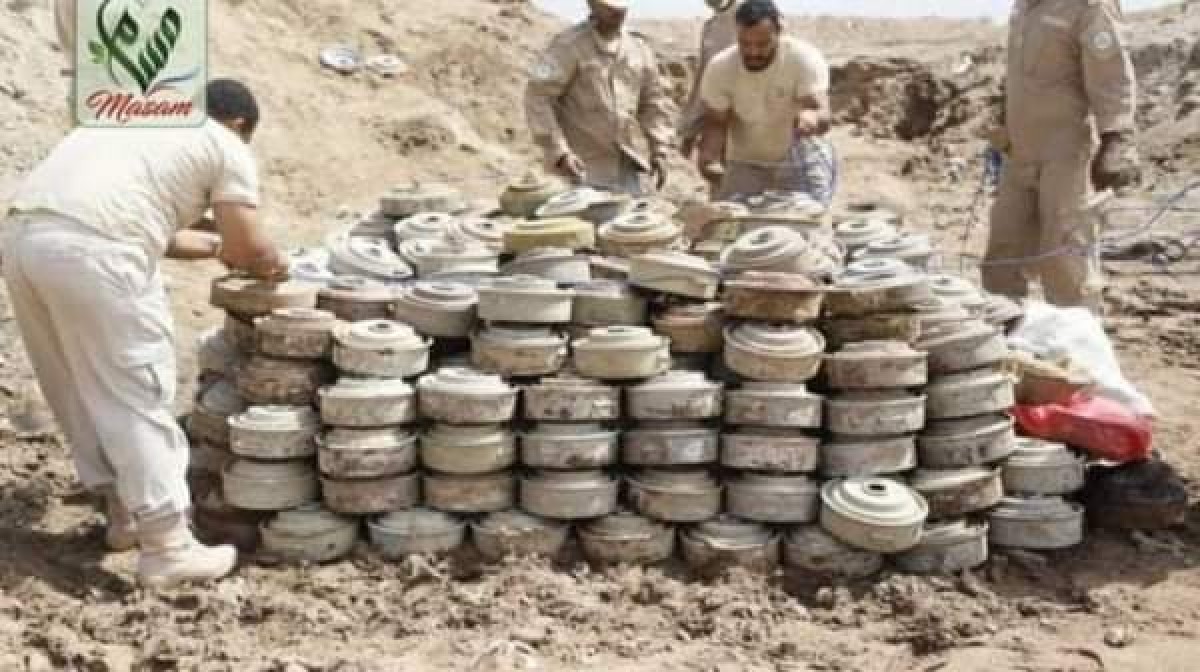Masam: Large and complex obstacles hinder the process of clearing Yemen of Houthi mines


The Director General of the “Masam” project to clear Yemeni lands of mines, Osama Al-Gosaibi, confirmed that there are major obstacles hindering the process of clearing Yemeni lands of mines planted by the terrorist Houthi militias, which have caused the death and injury of thousands of civilian victims.
Al-Gosaibi explained, in press statements, that the mine problem in Yemen is “large and complex” for several reasons, the most important of which is the Houthis’ continued manufacture and planting of mines. Despite Yemen’s signing of the agreement banning the use of individual mines, the Houthis are still planting mines extensively, Even in agricultural areas, infrastructure, villages, schools, and in front of mosques.
He pointed out the lack of maps and information, as Masam's teams lack maps and accurate information about the locations of mines planted by the Houthis, which greatly hinders the clearance process.
Al-Gosaibi explained that during the 6 years of their work, Masam teams removed more than 450,000 mines, explosive ammunition, and explosive devices, but this number is “massive and frightening” compared to the number of mines planted in Yemen, which require many years of hard work. To remove it.
He stressed that the “Masam” project is “the largest demining operations project in Yemen,” with 550 employees working in 32 field teams, and the project is fully funded by the Saudi government, stressing that it does not depend on foreign aid, but rather is funded and implemented. In a purely Saudi manner.
Al-Gosaibi considered the recent Human Rights Watch report, which addressed the problem of mines in Yemen, a “good beginning” to increase international interest in this issue, calling on the international community to provide more support for mine clearance efforts in Yemen, to save lives and facilitate the return of normal life. For civilians.